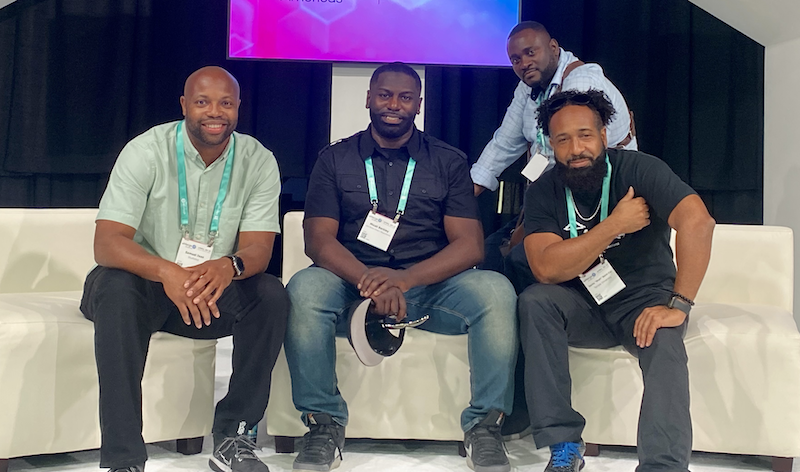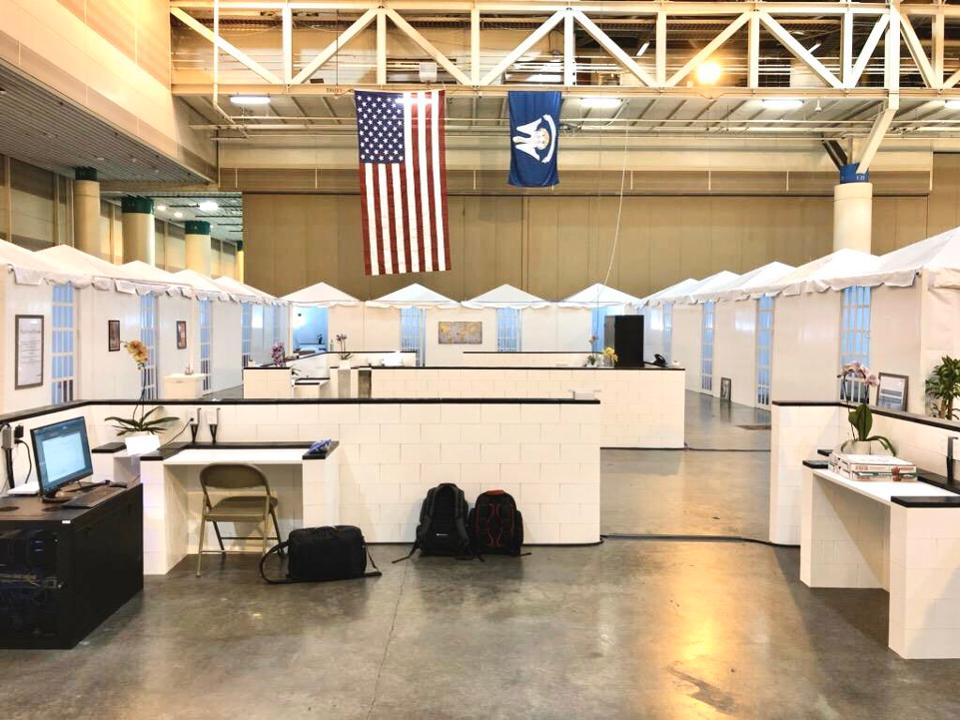When Sam Jean was a toddler, his parents moved from Haiti to New York in search of a better life. He stayed behind with his grandmother.
Three years later, once his parents settled, Sam finally reunited with them in the U.S. Later, the family moved to Massachusetts.
Sam only obtained a green card at the age of 19. Before that, he and his siblings lived as undocumented child immigrants.
“Our parents only allowed us to go to school and come back home,” Sam said. “They didn’t even want me to play sports so I signed the permission slips myself.”
From mental therapy to technology
In the Haitian community, seeking therapy used to be stigmatized. “If someone went to a psychologist, they’d call him a ‘moun fou’, which means a crazy person in Creole,” Sam said.
Growing up, he wanted to be a child therapist, to support kids struggling with mental health issues. “For a couple of years, I studied at a community college for early childhood development,” he said. “I dropped out, because I had kids and got married in my early twenties.”
By that time, Sam was already working in the field of child addiction. “Some stories were horrific,” he said. “Parents doing crack cocaine with their children as young as nine, pushing their kids into prostitution or selling them for drugs.”
Sam wanted to make an impact supporting children in their journey to adulthood, but changing the lives of adults was a challenge. “It felt like a revolving door: we’d help addicts, only for them to return a couple of months later,” he said.
After one of the center’s patients murdered Sam’s colleague, he transitioned away from the field. “Working in the community was one of my passions, but another one was technology,” he said.
His decision to enroll in a computer training program was spontaneous and inspired by a TV ad. “I saw a commercial, it was like: ‘Are you sitting at home, depressed?’ And I was like: ‘Yes, that’s me!’”

Soon after, Sam signed up to a computer networking program, although he already knew technology pretty well.
“Our instructor said: ‘You could probably teach this course.’
I told him I just needed a path, and he said: ‘Ok, the first thing I’m gonna teach you is to write a resume.’”
That small assistance played a part in landing Sam his first job in IT – as help desk support.
How to recover from failure
Gradually moving up the ladder in Big Tech, Sam passed IT certifications, mobile app design and programming courses.
Eventually, he ended up in New York, working on a large project to upgrade the city’s emergency management software.
“This was the peak of where I wanted to be in the tech world,” Sam said.
He was ready to start his own business, as an IT service provider. But opening an office in New York was too expensive so he moved to Miami.
While building his first company, Sam took a part-time job in a network operation center, working overnight shifts. He slept four hours at the time, but the business didn’t fly.
“I just didn’t know enough about this market, and my business model failed,” Sam said. Then a personal tragedy upended his life, when a close friend passed away from an overdose. “He was like a little brother to me, we used to live across the street.”
Using his background in mental health, addiction, and technology, Sam built a prototype of a teleconferencing device that helps people transition from rehab to the real world.
The aim was to reduce relapse rates by connecting former patients with their treatment centers. People could tap into their group’s broadcasted sessions to stay engaged.
The device was built a couple of years before COVID and the tele-health boom, and at that time insurance companies didn’t see it as a needed tool.
“In Haitian culture, there’s no such thing as failure, you just keep going,” Sam said.
“The day my business failed I was in my father-in-law’s house in Brazil, on the balcony overlooking the ocean.
I got on the phone with my sister, crying. She said: ‘Get back on the horse and keep pushing.’”
How to run five businesses simultaneously
Two new startups emerged out of Sam’s failed business idea. The first one, ProbityCare, is a turnkey solution designed to help mental health and addiction businesses manage their workflow.
The second one, Ascend Video, is an alumni program supporting people in their recovery. Users can find coaches, practices, mental health and wellness communities.
“We created a peer support model, where people who’ve overcome addiction can help others,” Sam said. “We provide training, certification, and connect them to their peers.”
He also restructured his first business, an IT service provider, into a consulting company called Brand Consultant Group. The firm focuses on small, mostly minority owned businesses, helping them with all things digital, such as software development and marketing.

Sam also purchased a remote work software. “When the seller showed me the first version, I analyzed the market and realized it’s not scalable: the competition was too intense,” Sam said. “But I knew I could use the technology.”
Sam bought the software, changed the code and created Studylitics, an analytical platform monitoring students’ productive learning hours on their devices.
His fifth venture, a donation platform called Wishlay, emerged out of a personal necessity. Sam needed a new laptop, but he couldn’t simply take the money out of his businesses.
“It was around my birthday so I decided to create a goal fund,” he said. “I wanted to provide more transparency of what I wanted to do with the money and built a platform. But one of my mentors told me: ‘Hey, I think this could be bigger than you think.’”
Wishlay provides landing pages to nonprofits with less than a $500K budget to present their mission. Many of these organizations don’t have a website or infrastructure to accept donations. Wishlay allows nonprofits to collect cash donations online, free of charge.
What’s next?
At a tech event in Miami, Sam met another Haitian techpreneur Shah Saint-Cyr.
Together, they co-founded The Haitian Community, a marketplace where people connect with Haitian-owned businesses in Haiti, U.S., and Canada.

“My sister, for example, couldn’t find a Haitian female therapist who could resonate with her cultural background,” Sam said. “She had to hire a white American woman who didn’t work out for her.”
The community platform made it possible to find Haitian healthcare professionals who speak Creole and understand their culture.
Sam’s other project is focusing on infrastructure development in Haiti through 3D printing affordable houses from pre-made panels.
He is currently collaborating with a presidential candidate in Haiti to raise awareness and secure funds for the initiative. “We want to train Haitians to build these houses,” Sam said.








